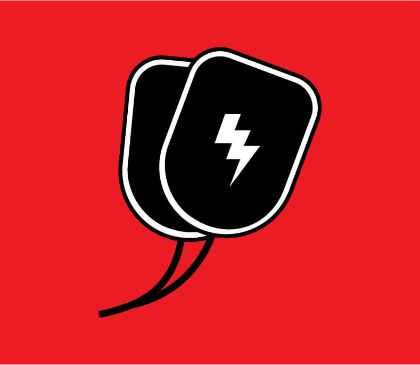Making the Case for Implementing AEDs at Sporting Events
- Apr 29, 2019

One of the best ways to prevent death from cardiac arrest caused by commotio cordis is prompt treatment with an AED.
Last Saturday, in Rohnert Park, California, an 8-year-old boy was up to bat for his team. The pitch was thrown, but was way off and hit the boy squarely in the heart. People saw him start to walk towards first base but then trip. He got up then fell again and this time didn’t get back up.
Two off-duty paramedics saw the boy collapse and rushed over to see what happened. When they checked his pulse they knew that he had suffered a sudden cardiac arrest. They began performing CPR while another bystander called 911. When emergency crews arrived they attached an automated external defibrillator (AED) to the boy and provided a shock. The shock jolted his small body, but it did what it was supposed to. They soon heard him start to breath as his heart began beating.
Cardiac arrest is uncommon at such a young age, but the impact of the ball hitting his heart had set him into a cardiac arrest from what is called commotio cordis. Commotio corids is a rare event, but can occur when an object traveling at a high velocity impacts the chest, near the heart wall and disrupts its normal rhythm. It occurs most commonly among boys and young men and has been reported that around 2-3 youth baseball players die from it annually in the US.
This latest example is a reminder that cardiac arrest can strike for many different reasons. Often it happens because of a preexisting heart condition and becomes apparent when the heart is being worked harder during physical activity. But as seen here, it can even happen from a blow hitting just the right spot. Most people are often concerned about protecting the head during sports, but the heart can be just as vulnerable to injury.
One of the best ways to prevent death from cardiac arrest caused by commotio cordis is prompt treatment with an AED. Prompt action taken with an AED saved this boy’s life. A couple more minutes without therapy from the AED and CPR would have resulted in permanent brain damage. In response to this incident, the baseball officials at Rohnert Park are looking into having an AED in every snack bar which is a great idea because snack bars provide a secure but easy-to-get-to place in case of an emergency. There are many parks that do not have an AED, so if you are involved in sporting events, I urge you to find out if the parks you attend are heartsafe and if they are not, hold them accountable to get one. 383,000 cases of cardiac arrest happen annually and there is no good reason the place where children play shouldn’t be safe.
For more information on Public Access AED packages, please visit: http://www.aed.com/aed-packages-page/public-access-aed-packages.html









 CALL US:
CALL US: